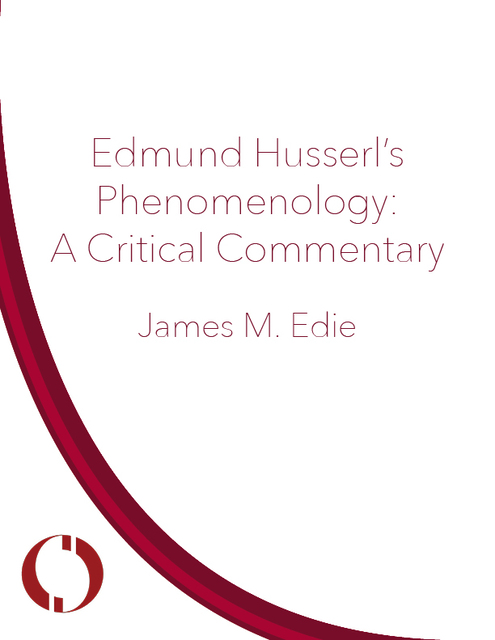Edmund Husserl's Phenomenology
A Critical Commentary
All of the major themes of Edmund Husserl's phenomenology, from the Logical Investigations to The Crisis of the European Sciences, are investigated from a critical point of view by James M. Edie. The philosophy of logic is considered insofar as it relates to the phenomenological and transcendental foundation of logic itself. Transcendental logic is studied with reference to both the formal logic of Aristotle and Leibniz and the dialectical logic of Hegel. Edie considers Husserl's theories of meaning and reference, intentionality, the distinction between perceptual and eidetic intuition, the notion of the ideality of meaning, the laws of objectivity in general, and formal and material ontology, as well as Husserl's reinterpretation of the apriori. Concerned throughout with the study of language and its place in phenomenology, Edie pays special attention to Husserl's conception of pure apriori grammar in its relationship to contemporary linguistic structuralism. The book culminates in an exploration of the more dramatic elements in Husserl's phenomenology, which are frequently misinterpreted by the existentialists and neglected by the stricter logicians, such as the theory of freedom, the relationship of phenomenology to existentialism, and the various correlative levels of meaning and being within a phenomenological analysis of our experiencing-in-the-world.

Table of Contents
Metadata
- isbn978-0-253-05559-0
- publisherIndiana University Press
- publisher placeBloomington, Indiana USA
- restrictionsCC-BY-NC-ND
- rightsCopyright © Trustees of Indiana University
- rights holderIndiana University Press
- rights territoryWorld
- doi
We use cookies to analyze our traffic. Please decide if you are willing to accept cookies from our website. You can change this setting anytime in Privacy Settings.


